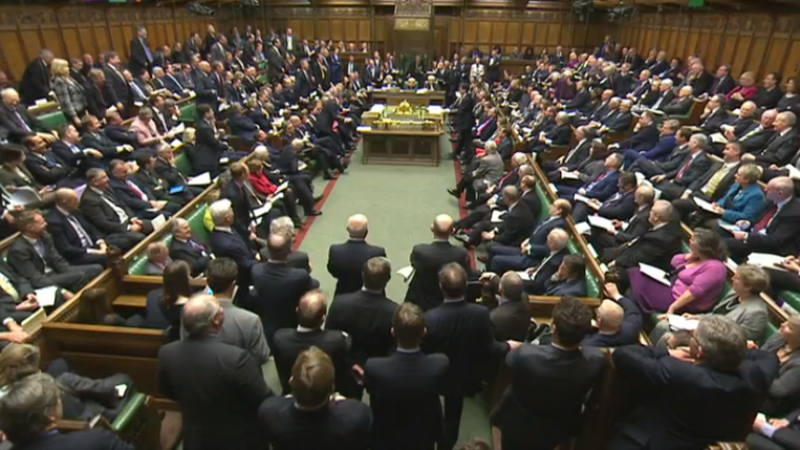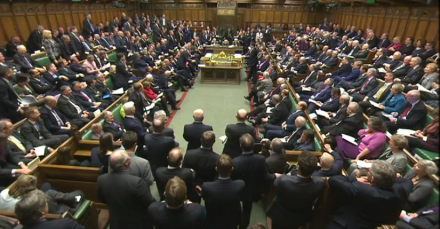
We are getting near to the end of what, because the fixed-term Parliament has meant we have always known the Polling Day, feels like a very long election campaign.

If a big slice of public opinion Scotland hadn’t decided to prioritise a debate about national identity over one about social justice, the result would be in no doubt – Labour would very clearly be the largest party and might be within touching distance of a majority, particularly as all the organisational resources diverted to fight the SNP could have been used to attack Tory marginals, and the Tories would not have had the SNP bogeyman to scare English voters with. Thanks, Nicola. I hope there is still a chance that enough people in Scotland will see the big picture and be sickened by the ugly side of the SNP’s campaigning and switch back to Labour – every Scottish Labour seat saved might be the one that makes the difference between Labour and the Tories being the largest party.
In the circumstances Labour has performed extremely robustly to be in contention to be largest party on seats and votes even with a bad result in Scotland. The campaign nationally has been calm, competent and focused. The internal spats that normally end up in the media either haven’t happened or haven’t leaked. Ed Miliband has done the Party proud. Our ground campaign in the marginal seats has lived up to the hype and justified five years of investment by General Secretary Iain McNicol, as proven by the Ashcroft constituency polls showing we have contacted more voters than our main opponents. Our candidates and activists have worked their socks off.
But because of the Scottish situation we are where we are, which is likely to be a Parliament even more hung than the last one because no two parties that could reasonably work together will command a majority.
What’s unforgivable in these circumstances, which are fairly routine in most other European countries and just dealt with post election through a mature process of negotiation and testing which Prime Minister can command a majority, is that the Tories and some of their press allies are trying to undermine the legitimacy of a potential Labour minority government before a single vote has been counted.
It’s unforgivable because forming a government and governing is not just a political prize that enables you to take decisions that shape the country according to your party’s ideology and vision; it’s a duty and responsibility. For the government to function and for the markets to have confidence in our economy, you have to have a stable administration, and you have to have that British concept, “Her Majesty’s Loyal Opposition”. The Opposition has a duty to scrutinise the Government, to try to stop legislation it disagrees with, to turf the Government out and replace it at the first opportunity. But it has to respect the right of the Government to hold office, not try to fundamentally question their legitimacy.
Labour didn’t suggest it was constitutionally illegitimate for the Lib Dems to go into coalition with Tories and ditch half their manifesto. We said it was bad politics and morally suspect but that is a political argument not a constitutional legitimacy one. Ditto the Tories when Labour ended up in a minority government in 1974, or 1929, or 1923 when we came second and only had 191 MPs but it was apparent that the Tories with 258 seats and over a million more votes than Labour couldn’t command a majority in the Commons.
The formation of a Government next week could be messy but that’s because the electorate has chosen the messy path of a referendum result that stuck with a voting system designed for two parties, and party preferences that have splintered off in six directions.
And we are an old democracy that has precedents for dealing with these messy scenarios (as illustrated by my mention of 1924) and civil servants with plenty of guidelines about the process they need to follow.
The process is at heart fairly simple. As incumbent PM David Cameron stays in office unless he works out (or the Commons demonstrates to him) that he can’t win a confidence vote. If he can’t do it Ed Miliband is invited to form a government. He has a duty to try. It doesn’t have to be a coalition holding a majority, or any kind of coalition. It doesn’t mean that Labour has to have more seats than the Tories. It certainly doesn’t mean Labour has to have more votes as the national vote totals are of no constitutional relevance in a First-Past-the-Post system. The legitimacy of a Labour Government would depend simply on the Tories having been unable to win a confidence vote and Labour being able to win one. That doesn’t even mean having 326 or 323 votes, just a plurality of those MPs who do vote. Some voices have suggested that a formal deal with the Lib Dems would somehow add legitimacy. You can’t add to it, you either have it or you don’t. And morally I am not sure that bolting on the MPs from a party which will probably have just lost half its votes and seats adds to your mandate.
Once this first hurdle of confidence has been crossed I am not sure the rest is so difficult. This will not be a 1924 scenario where we are 67 seats behind the Tories.
If the SNP have a big block of seats they will presumably not be voting with the Tories to stop our main manifesto policies like abolition of Bedroom Tax. If there are measures they don’t like we can introduce the legislation on a take-it-or-leave-it basis and condemn them if they block it. The SNP themselves proved in 2007-2011 at Holyrood that a government can be very active by taking executive administrative decisions rather than passing reams of legislation.
To carry on for the full five years a minority Labour government would just need to avoid losing a confidence motion. The ball would be in the SNP’s court about whether to bring down a Labour government prematurely in a confidence vote. If they did, they would reap a political whirlwind – and remember they face a Holyrood election next year. Foot’s adage from their 1979 no-confidencing of Callaghan about “turkeys voting for an early Christmas” would be replayed ten-fold.
If Labour is presented with the chance to form a government, however bad the hand we are dealt in terms of numbers of votes or seats, we won’t just be legitimate in doing that, we will have a constitutional duty to accept, and a moral duty to the British people to try to enact as much of our programme as possible. The alternative, five more years of Cameron, is a lot worse than the difficult duty of governing.



More from LabourList
Haigh: We won’t shut ticket offices or cut jobs – or nationalise water
Lou Haigh to reveal ‘roadmap’ for public ownership of railways within first term
Rochdale Labour says brick thrown at candidate’s home with ‘f*** Labour’ note